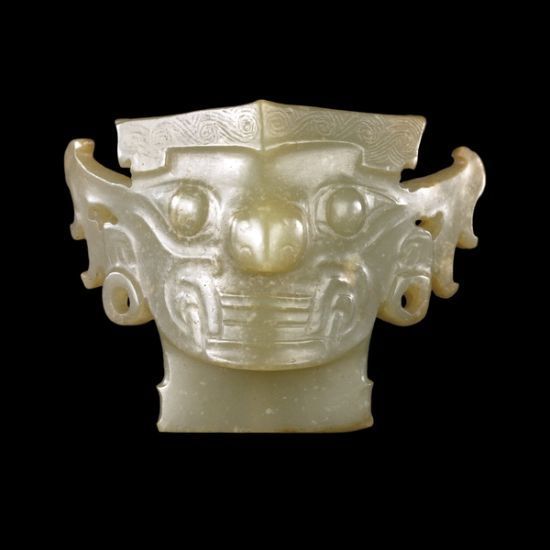Jade face, late Neolithic period, around 2000 BC
 |
|
The Jade face is housed in the British Museum.
|
This is a finely carved jade piece with the pattern of a human-like face with large tusk-shaped teeth. The face is finely carved with thread relief indicating distinct features. Its hair is represented by tiny scrolls and lines.
A number of similar faces have been found in China, mainly from Neolithic times. They were a subject of great curiosity throughout early Chinese history: being collected in later periods, and copied, to some degree, by later carvers.
One such face was uncovered in a tomb dated 1300 BC in Jiangxi province, southern China. Another was discovered in a Western Zhou tomb between the 10th and 9th century BC near Xi'an, in Shaanxi province, northern China. We do not know what these ornaments signified to the Neolithic peoples who made them, nor to those who chose to be buried with them in subsequent eras.
We Recommend:
